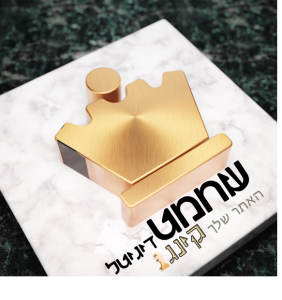Chanukah-We are mehadrin
Chanukah
We are mehadrin
“What is the reason for Chanukah? For our Rabbis taught: On the twenty-fifth day of Kislev the eight days of Chanukah begin, during which lamentation for the dead and fasting is forbidden. For when the Greeks entered the Temple, they defiled all the oils therein, and when the Hasmonean dynasty prevailed and defeated them, they made search and found only one cruse of oil which lay with the seal of the High Priest, but which contained sufficient [oil] for one day’s lighting only; yet a miracle was wrought therein and they lit the lamp therewith for eight days. The following year these days were declared a Festival with the recitation of Hallel (hymns of praise) and thanksgiving.”
“Our Rabbis taught: The precept of Chanukah demands – one light for a man and his household, the zealous – kindle a light for each member of the household, and the extremely zealous – the school of Shammai maintains: On the first night eight lights are lit and thereafter they are gradually reduced, but the school of Hillel maintain: on the first day one is lit and thereafter they are progressively increased. The reason of Beit Shammai is that it shall correspond to the days to come and that of Beit Hillel is that it shall correspond to the days that are gone…” (Babylonian Talmud, Shabbat 21b)
The minimum requirement for fulfilling the mitzvah of Chanukah lighting is by kindling one light for the whole household every night: a total of eight lights during Chanukah (one each day).Yet, we insist on more than the minimum requirement and add additional candles each night, so as to perform the mitzvah in a way considered “hamehadrin min hamehadrin“.
The word mehadrin derives from the root hadar, meaning glory/ grandeur/noble or beauty. When we add the additional candles, we glorify the mitzvah by performing it in the most particular and meticulous way insisting on excellence in its performance, in the most beautiful manner.
This way of performing a mitzvah is usually limited to the most conscientious, scrupulous and committed persons. It is interesting that the mehadrin min hamehadrin practice is unanimously accepted and not limited to the very meticulous, whereas we do not observe this insistence on meticulous observance in the performance of other, mitzvot.
This question is addressed by R. Yitzchak Meir Alter (1799-1866, also known as the Chidushei HaRim) who asks two more questions relating to the story of the miracle of the oil, the miracle that the mitzvah of lighting Chanukah lights celebrates.
When the Hasmoneans found the single sealed flask of oil, they knew that they were not going to be able to produce pure undefiled oil for another seven days (See Beit Yosef, Orach Chaim no. 670). If so, why did they not use thinner wicks, thus allowing the available oil to burn longer? Why did they rely on a miracle?
The Gemara in Yoma 6b, states that on matters relating to communal mitzvot, the laws of impurity (tumah) are either overridden (dechuyah) or suspended (hutrah). If so, why need for a miracle? Why could they not just use defiled oil?
He answered that indeed there was no need for a miracle in order to fulfill the mitzvah of lighting the lamps in the Beit HaMikdash (Temple). They were not required to light with undefiled oil. They could have used the impure oil, but instead when they found the single sealed flask of oil, they divided it into eight portions and they used a wick one-eighth of the normal size. This would have resulted in a very small light and the performance of the lighting of the menorah in its most basic fashion. When they poured in one-eighth of the usually required amount of oil, miraculously the entire fuel cavity filled with oil realizing that they now had the necessary amount of olive oil they then replaced the thin wick with the normal sized wick. Thus, they were able to perform the mitzvah in its most splendorous fashion – behidur. Thus the hiddur was the main feature of the miracle. The miracle provided the Jewish people with the opportunity to fulfill the mitzvah in a mehadrin fashion. Therefore, to commemorate the miracle, we too all fulfill the mitzvah in the most scrupulous fashion –mehadrin min mehadrin.

 שחמט דיגיטל
שחמט דיגיטל